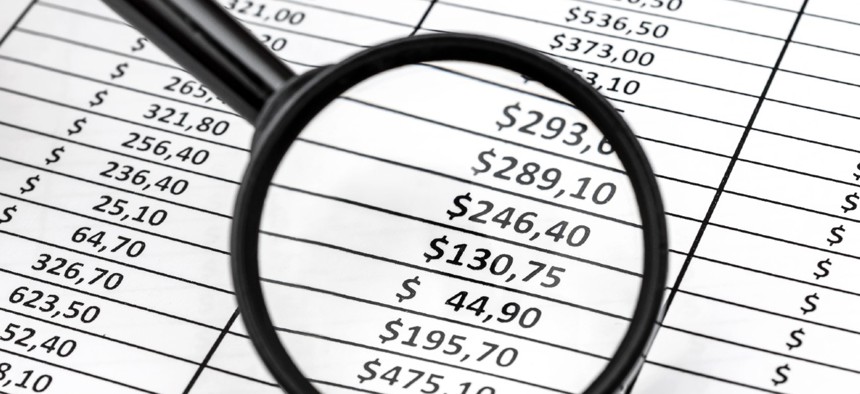
By IhorL / Shutterstock.com
Watchdog: OMB Should Issue Guidance About Improper Payments With COVID Relief Funds
The full extent of the issue is not fully known yet, but there could be a “substantial” sum in mistaken payments, said the Government Accountability Office.
A watchdog recommended earlier this week that the White House issue guidance to federal agencies about calculating potential improper payments with their coronavirus relief funds, which could be a “substantial” problem.
The Government Accountability Office issued a lengthy report on Monday about how the federal government can improve its response to the novel coronavirus pandemic, which has been raging in the United States for almost a year. One of the issues the watchdog looked at was improper payments (meaning payments made in the wrong amount or that should not have been made), because of the over $1 trillion in relief funds appropriated this year, with more to come possibly.
“Unlike the supplemental appropriations acts that provided for disaster relief related to the 2017 hurricanes and California wildfires, the COVID-19 relief laws did not require agencies to deem programs receiving these relief funds that expend more than a threshold amount as ‘susceptible to significant improper payments,’” GAO said. “In addition, based on [Office of Management and Budget] guidance, improper payment estimates associated with new COVID-19 programs established in March 2020 may not be reported until November 2022.”
Therefore, OMB should craft then issue guidance to all agencies mandating that they “include COVID-19 relief funding with associated key risks, such as provisions contained in the CARES Act and other relief legislation that potentially increase the risk of improper payments or changes to existing program eligibility rules, as part of their improper payment estimation methodologies,” said the watchdog. “This should especially be required for already existing federal programs that received COVID-19 relief funding.” It made related recommendations to the Small Business Administration and Congress.
The House, Senate and White House have been engaged in intermittent talks about the fifth COVID-19 relief package for months. Most recently, House Speaker Nancy Pelosi, D-Calif., and Senate Minority Leader Chuck Schumer said in a joint statement on Wednesday afternoon that the framework a group of bipartisan senators introduced on Tuesday, “should be used as the basis for immediate bipartisan, bicameral negotiations.” Also, on Tuesday, President-elect Joe Biden called on Congress to immediately pass a relief package, but noted that anything during the lame duck period will be just a starting place.
GAO acknowledged that the full extent of the issue of improper payments with coronavirus funds is not fully known yet, but said it could be “substantial.” The watchdog cited the eight individuals who pleaded guilty to defrauding relief programs (such as the SBA’s paycheck protection program and economic injury disaster loan program, and the Labor Department’s unemployment assistance program), 130 individuals currently facing charges for attempting to defraud the programs and various inspectors general and law enforcement investigations into these matters.
In March, GAO reported that in fiscal 2019, federal agencies made an estimated $175 billion in improper payments, which was up $24 billion from fiscal 2018. It also found that in fiscal 2018, half of the major agencies complied with all of the requirements with the laws aimed at reducing improper payments.
OMB did not provide comments to GAO on the new report. However, a senior administration official told Government Executive about the steps the agency has been taking to ensure good stewardship of funds.
“Per usual, our current guidance sufficiently addresses GAO’s recommendation and concerns. OMB’s priority to reduce improper payments and combat waste, fraud and abuse across government hasn’t stopped during COVID-19 – with or without the help of Congress,” said the official. “OMB is actively coordinating and engaging with the [Pandemic Response Accountability Committee] and [inspectors general] to share or discuss information relevant to COVID-19 spending risks and improper payment reduction strategies that can be deployed during the current and future crises.”







